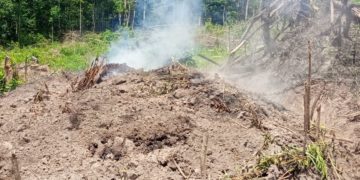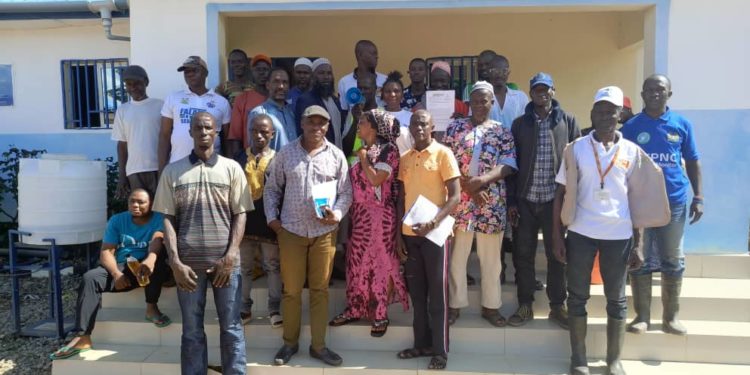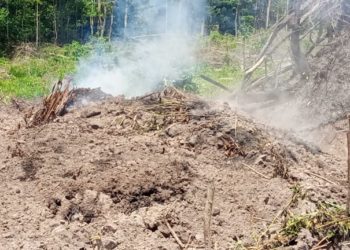By Janet Sam-Kobba
Border communities are usually the most neglected in terms of service provision like finance and healthcare. This is the exact experience of the people of Koindukura in Falaba District.
Koindukura, a prominent business center, is at the border between Sierra Leone and Guinea.
FOCUS 1000 is among the few Non-Governmental Organizations that have been filling the vacuum created by apparent government neglect of the community and its environs, through its interventions in the areas of healthcare, like immunization; agriculture; business and livelihood activities.
But these efforts have sometimes been frustrated by bureaucracy caused by border officials.
On August 22, the NGO, in collaboration with Mamaye Community Advocacy Network, organized a meeting that brought together officials from both countries to discuss these issues with the goal of addressing lingering concerns. The participants included security and health officials, as well as other NGO partners. The Guinean officials crossed over from the neighbouring border town of Heamakono.
Other participants included representatives of key institutions like the International Organization for Migration (IOM), the Ward Councilor, the In-Charge of the Koindukura Peripheral Health Unit, as well as farmers, cattle rarers and business people.
Solomon Bobor, District Coordinator of FOCUS 1000 in Falaba, said the meeting served as a platform for his organization to create a collaborative environment for their operations as a government development partner.
Mr Borbor said they discovered that Guinean nationals cross over to the Sierra Leone side all the time to access healthcare services. He said this was the case during the first round of the novel oral poliovirus mass vaccination campaign conducted by Sierra Leone between May and June this year.
But according to Borbor, after that experience during the first round of the vaccination campaign, when Guineans entered Sierra Leone through Mongor Kamaron in Delmadugu Chiefdom, they decided during the second round to cross the border into Guinea to administer the vaccine.
But he said that the Sierra Leonean health workers were detained on their way out of Guinea. Guinean security officials reportedly confiscated the motor bike of the health workers and only releasing it after they paid the sum of NLe500.
“This is a move to prevent a recurrence of that, because we will embark on similar activities again,” Borbor told ManoReporters after the meeting.
The meeting was organized in collaboration with Mamaye, whose Executive Director, Steven Gibrilla did the ground work to bring the stakeholders together.
Mr Gibrilla said the meeting was important to his organization because one of their main objectives was to focus on livelihood and security in the border areas. He said that even though Koindukura is part of Solima Chiefdom in Falabo District, the people there engage less with the rest of Sierra Leone.
“Koindukura has lots of challenges in the sense that they don’t have much relations with Sierra Leone, even though the town is in Sierra Leone. Most of what they consume, come from Guinea. The only thing that comes from Sierra Leone are fuel and ‘Rubber Drinks’,” he said.
The meeting, according to him, also served as a link or collaboration between the two countries thereby fostering youth and women’s empowerment, as well as help in the fight against drug and substance abuse.
“The importance of the meeting to Mamaye is to strengthen the cross border relationship with the border management team, the women’s group, the youth group and also to help identify young people that are involved in Kush (drug) abuse,” he added.
Janet Sam-Kobba is an intern at ManoReporters and she is a final year student at the Mass Communication Department at Central University in Mile 91.




















